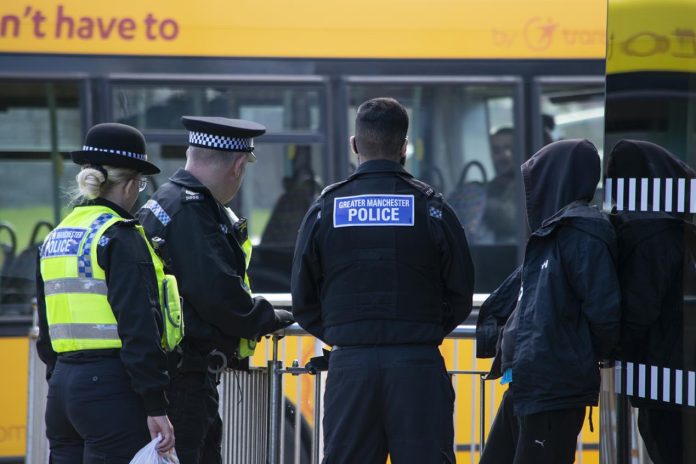A new campaign by Greater Manchester’s TravelSafe Partnership is warning young people that they could lose their free or concessionary travel passes or be banned from public transport if they persistently engage in antisocial behaviour on the network.
Don’t Get Ghosted urges young people to consider the consequences of their actions while travelling on buses or trams and the potential impact on their everyday lives, whether it’s socialising with friends or getting to school or college.
This can include having travel passes such as Our Pass, igo cards and concessionary travel being withdrawn immediately for a criminal offence, or of committing antisocial behaviour on three separate occasions. Withdrawals remain in place for a minimum of one year.
The TravelSafe Partnership also follows up with a letter home to parents explaining why their child has had their pass taken away from them.
Examples of antisocial behaviour which are regularly committed by young people on public transport include vaping, throwing things, playing music loudly, activating emergency door handles on trams, and being noisy or abusive in groups.
notices which prevent a right to access the public transport network, meaning that an individual found using the network will be trespassing. Serious public order offences committed on public transport could also lead to legal action.
Don’t Get Ghosted, which launched today, is spearheaded by a series of videos which will be released throughout the summer holidays when incidents of crime and antisocial behaviour on public transport increases.
They show three groups of friends demonstrating different types of antisocial behaviour, such as vaping, playfighting or throwing food, while travelling on a bus.
While their behaviour is challenged by their peers, they suddenly disappear from the bus. This simulates what happens to those who are persistently caught committing crime or antisocial behaviour on public transport – their right to travel can be taken away.
Vernon Everitt, Transport Commissioner for Greater Manchester, said: “Everyone using or working on our public transport and active travel network is entitled to be, and feel, safe at all times. While crime and antisocial behaviour is not confined to transport, we simply will not tolerate it in any form.
The overwhelming majority of young people who travel by bus, tram or train do so with respect for fellow passengers and hardworking transport staff. Getting around on public transport is hugely important for young people, whether it’s to see friends or to get to school or work.
“But the privilege of using a bus or tram could be taken away from the minority of people who persistently engage in antisocial behaviour, and this could have a real impact on their daily lives. I urge all young people to engage with this campaign and reflect on how their actions can have consequences for themselves and others.”
As of the end of July this year, a total of 26 igo passes have been withdrawn from young people involved in antisocial behaviour across the public transport network.
Out of 16 exclusion notices handed out by the TravelSafe Partnership this year, 11 were given to young people.
Antisocial behaviour takes many forms, with the most dangerous relating to public transport including buses, trains or trams being hit by objects such as bricks. This can result in services being diverted or withdrawn from certain routes, as well as posing a risk to the safety of drivers and passengers.
But many young people may be unaware that the way they act by themselves or in a group at bus or tram stops and stations, such as being noisy or abusive in groups, can also cause distress to other people, including peers and transport staff.
Kate Green, TfGM’s TravelSafe Partnership Manager, said: “The TravelSafe Partnership is serious about tackling crime and antisocial behaviour on public transport, and ensuring that the public can use our bus, tram and active travel networks safely and securely.
“We know that most young people who travel on the public transport network do so safely and responsibly, but there will be consequences for those who break the law or make other passengers feel frightened or uncomfortable.
“One moment of madness or showing off could result in them being banned from the network or potentially prosecuted, so we’d encourage young people to think about the consequences of their actions.”







